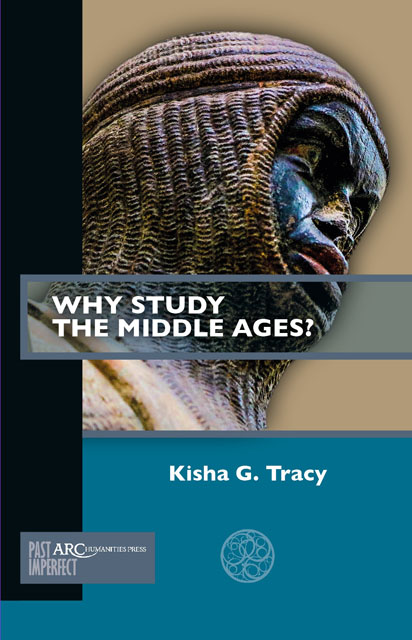Book contents
- Frontmatter
- Contents
- Introduction: The Middle Ages and the Liberal Arts
- Chapter 1 The Middle Ages and the Humanities
- Chapter 2 The Middle Ages and STEM
- Chapter 3 The Middle Ages and the Social Sciences
- Chapter 4 The Significance of Studying the Middle Ages
- Conclusion: The Connections among the Arts
- Further Reading
Chapter 4 - The Significance of Studying the Middle Ages
Published online by Cambridge University Press: 06 December 2022
- Frontmatter
- Contents
- Introduction: The Middle Ages and the Liberal Arts
- Chapter 1 The Middle Ages and the Humanities
- Chapter 2 The Middle Ages and STEM
- Chapter 3 The Middle Ages and the Social Sciences
- Chapter 4 The Significance of Studying the Middle Ages
- Conclusion: The Connections among the Arts
- Further Reading
Summary
The fifth responsibility of the student is for the student in pursuit of the sciences to not leave a single aspect of the study of the praiseworthy sciences or any branch of them without giving them careful consideration, in order to apprise himself of its significance and purpose.
Al-Ghazâlî (ca. 1058–1111, Persia), “The Book of Knowledge,” Iḥyā′ ‘Ulūm al-Dīn [The Revival of the Religious Sciences]Derek Black was the heir-apparent to the hate group Stormfront that was founded by his father. Growing up, he had been exposed regularly to a version of medieval history propagated by white supremacists. He was drawn to the period, even making his own armor and participating in medieval reenactment groups. Homeschooled for primary and secondary school, Derek then attended a liberal arts college in Florida, especially to study medieval history. Once there, his preconceptions were challenged regularly inside and outside of the classroom. Finally, he had to confront his beliefs:
[Derek Black] had chosen New College because he wanted to study medieval history, and he had been drawn to medieval history in part because the mythology of white nationalism centered on the Middle Ages […] Instead the facts of history pointed him to another conclusion: the iconic European warriors so often celebrated on Stormfront had never thought of themselves as white, Derek decided. Some of them had considered skin color not a hard biological fact but a condition that could change over time based on culture, diet, and climate. They had fought not for their race but for religion, culture, power, and money, just like every other empire of the Middle Ages […] And if he had been that wrong about history—his field of expertise—then he was also willing to believe he had been wrong about so much else.
At that point, Derek Black left Stormfront, turned his back on his legacy of white supremacy, sought to redress the wrongs he had committed, and embraced a different life as a graduate student of medieval studies.
While there were multiple factors in Derek's conversion, his liberal arts education played a crucial role. From the types of classes to the diversity of other students that such colleges attract, the liberal arts experience helped Derek think critically about the fallacies of the “truth” he had been exposed to all of his life.
- Type
- Chapter
- Information
- Why Study the Middle Ages? , pp. 91 - 98Publisher: Amsterdam University PressPrint publication year: 2022



